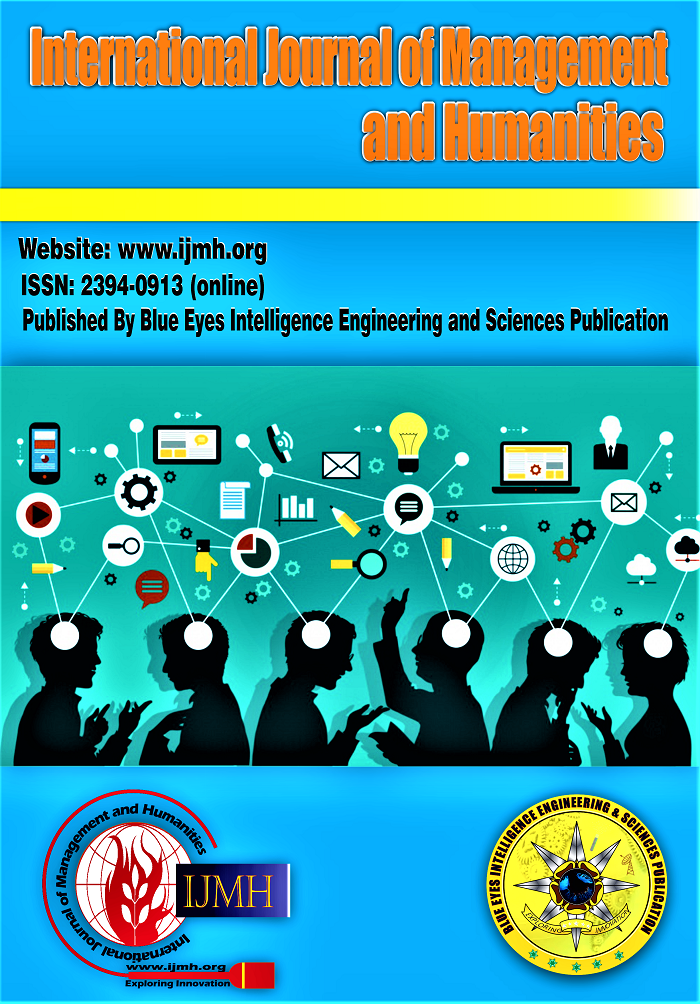A Study on Growth Rate of the Textile Industry in India Provides Valuable Insights Into its Development and Trends
Main Article Content
Abstract
The export of textiles from India has shown notable trends, with a significant impact on the nation's economy. Key facets include the diversification of export products, expansion into emerging markets, government initiatives to bolster the sector, increased emphasis on sustainability, and the industry's substantial contributions to employment, foreign exchange earnings, GDP, and value addition. As Indian textile manufacturers strive for higher value-added products and integration into global supply chains, the sector continues to play a pivotal role in economic growth. The study is based on descriptive research methods. The analysis relies on secondary data sourced from academic journals, reports from the Textile Ministry of the Government of India, publications by the Indian Textile and Clothing Exports Association, and various other pertinent private and public reports. Through correlation analysis, the study explores the robust relationship between India's textile exports and the overall exports from the country in recent years. Furthermore, it investigates the influence of India's export conditions on its textile exports globally, revealing a significant correlation between India's textile exports to the United States and its overall exports to the U.S. in the specified period from 2013 – 2023.
Downloads
Article Details
Section
How to Cite
References
Bhambri CA.(Dr.) Gaurav & Kavita (2021), An Exploratory Research on Problematic Factors in Textile Industry & Consequences of Decrease in Export of Textile Products: Especially Economic Development Retention 6324 Turkish Online Journal of Qualitative Inquiry (TOJQI) Volume 12, Issue 8 July, 2021: 6324 – 6333. https://www.tojqi.net/index.php/journal/article/view/7157/5090
Gaurav Bhambri and Kavita Rani, (2021) , Contemporary `Policies & Programmes` of Government of India for Rising Export of Textile Products & Fabrics & It`s Impact-especially in Haryana, International Journal of Management (IJM), 12(2), 2021, pp. 839-848. https://www.researchgate.net/publication/350192505
Elbehri, Hertal and Martin (2003): “Estimating the Impact of WTO and Domestic reforms on the Indian cotton and Textile sectors: a general equilibrium approach”, Review of development economics 7(3),343-359. DOI: https://doi.org/10.1111/1467-9361.00195
Monto bio-Fabio and Rampa Francesco (2005), “The impact of Technology and structural change on Export performance in nine developing countries”. World development vol 33, No.4 , 527-547. https://ideas.repec.org/a/eee/wdevel/v33y2005i4p527-547.html
Kathuria, S., &Bhardwaj, A. (1998). Export Quotas and Policy Constraints in the Indian Textile and Garment Industries. Policy Research Working Paper No. 2012. Washington, D.C.: The World Bank. https://documents.worldbank.org/en/publication/documents-reports/documentdetail/474811468771597434/export-quotas-and-policy-constraints-in-the-indian-textile-and-garment-industries
Kathuria, S., Martin, W. & Bhardwaj, A. (2001). Implications for South Asian Countries of Abolishing the Multifibre Arrangement. Policy Research Working Paper No. 2721. https://openknowledge.worldbank.org/entities/publication/14af2981-214f-58a2-ae63-4650f783488e
Washington, D.C.: The World Bank. Majmudar, M. (1996), Trade Liberalisation in Clothing: the MFA Phase-Out and the Developing Countries, Development Policy Review, 14(1), 5-36. 8. Ministry of Textiles (2001), Annual Report 2019-20, Retrieved from Ministry of Textiles, India (2012), 2019,2020,2022 Compendium of Textile Statistics. DOI: https://doi.org/10.1111/j.1467-7679.1996.tb00408.x
Muminova Nargiza Makhsudjonovna, Maxmudova Dilfuza Marlenovna, Generation the Strategy of Financial Stability at the Enterprises of Textile Industry. (2019). In International Journal of Innovative Technology and Exploring Engineering (Vol. 8, Issue 9S3, pp. 147–150). DOI: https://doi.org/10.35940/ijitee.i3030.0789s319
Vanishree Beloor, T S Nanjundeswaraswamy, Swamy D R, Quality of Work Life – Development and Scale Validation for Textile Sectors in India. (2019). In International Journal of Engineering and Advanced Technology (Vol. 8, Issue 6, pp. 1736–1747). DOI: https://doi.org/10.35940/ijeat.f8432.088619
Faried, A. I., & Sembiring, R. (2020). Creative Economy Potential through Typical Ulos Fabric Small Industries to Promote the Economy of Lumban Suhi-Suhi Village, Toruan Samosir Regency. In International Journal of Management and Humanities (Vol. 4, Issue 5, pp. 116–122). DOI: https://doi.org/10.35940/ijmh.e0550.014520





